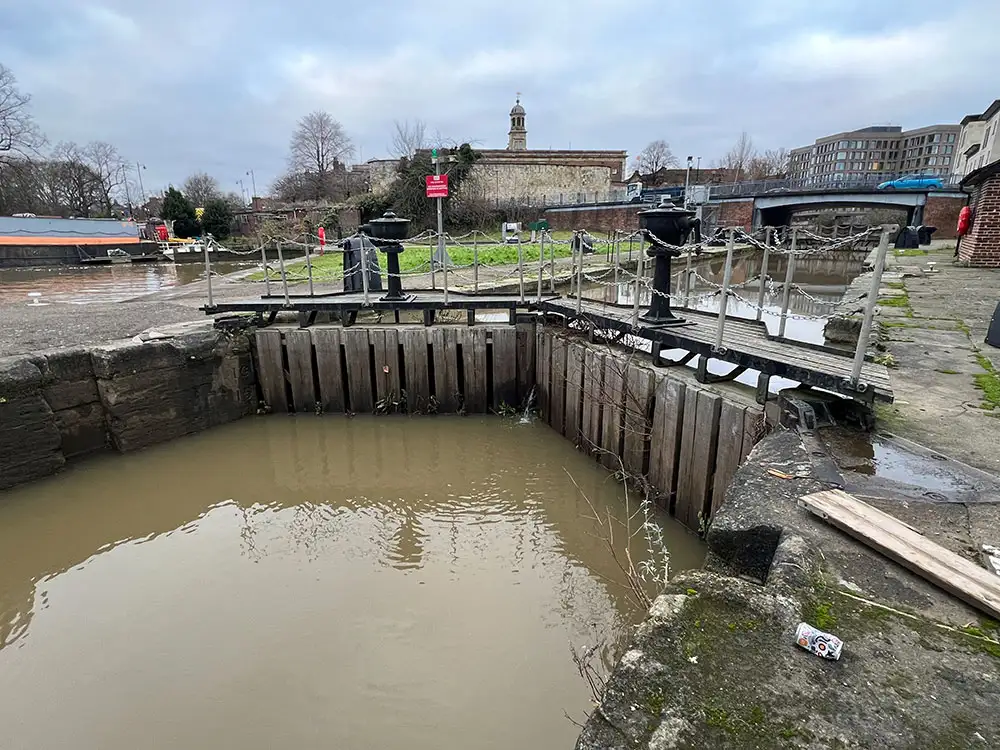Works costing £1.36m to replace lock gates on York’s River Foss are needed urgently, a council official has said amid claims only a handful of ‘trophy hunters’ will benefit.
Chris Rainger, a former waterways engineer, said the Castle Mill Lock gates were only being used a few times a year including by boaters trying to complete a navigation challenge.
But Tim Rane, of the River Foss Society whose volunteers operate the gates, said their use had been limited by their condition which would get worse if repairs are delayed.
James Gilchrist, environment, transport and planning director at City of York Council, which is responsible for the lock, said the almost 40-year-old timber gates could fail unless they are replaced.
It comes as the lock, in the Castle Mills Marina, is set to be closed to navigation from Monday, (28 April) for the works.
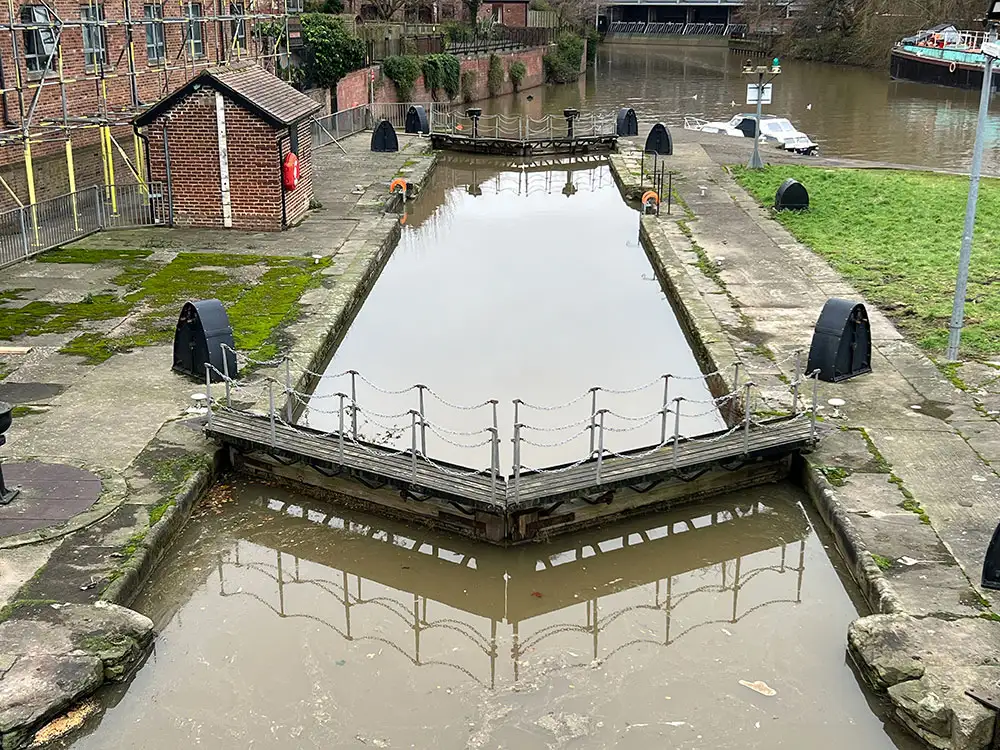
A council stoppage notice posted on the lock stated they were set to reopen in October.
The lock’s origins lie in the passing of the Foss Navigation Act 1793 to make the river commercially navigable and was followed by the opening of a canal to Strensall.
The current lock structure dates from 1889 when it was rebuilt and the gates were last replaced in 1986.
A planning application lodged with the council stated the works would see the lock drained and fish rescued before the upstream and then downstream gates are replaced.
The application stated the gate’s timber was rotting, leaking extensively and they were at risk of failing or becoming inoperable.
The council is legally responsible for maintaining the lock as the local navigation authority.
Used 70 times a year
But Mr Rainger, who worked on locks for British Waterways which historically oversaw many of the UK’s canals and rivers, said the works should be externally funded.
He added his Freedom of Information request to the council found it was spending its money on the gates which had been used around 70 times in the decade.
Mr Rainger estimated it equates to three to four boats using it a year, along with ten passages a year for the council’s River Foss floating rubbish clearing platform.
The former engineer said some of those using the lock recreationally were boaters trying to complete the Inland Waterways Association’s (IWA) Silver Propeller Challenge.
The challenge aims to encourage boaters, canoeists and others to explore underused waterways across the UK.
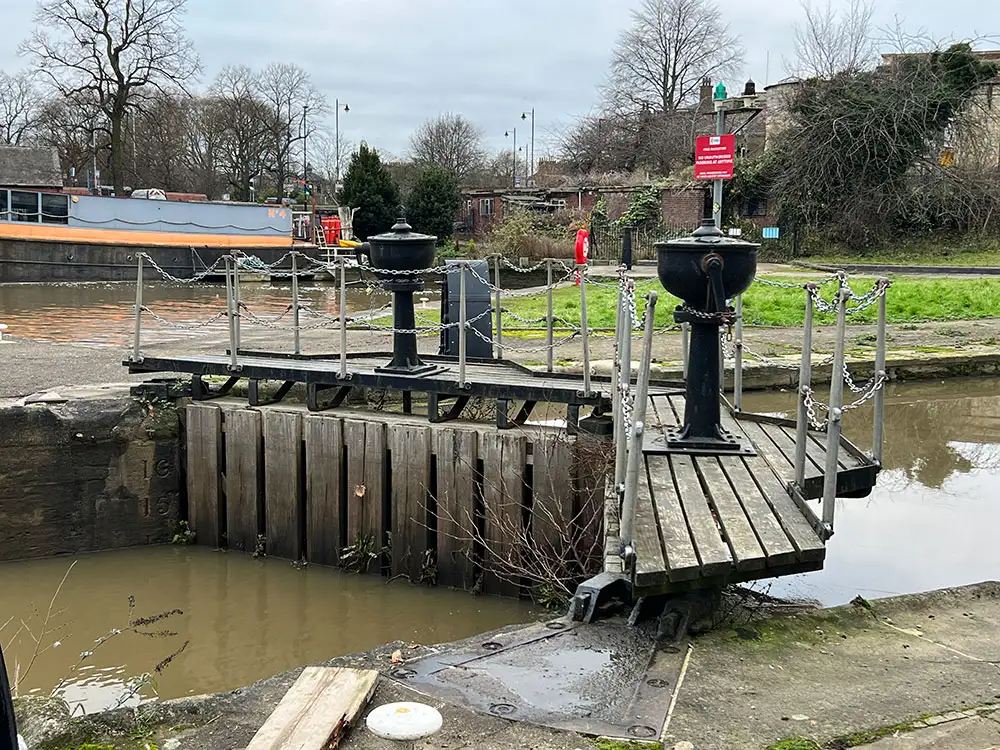
Mr Rainger said the £1.36m cost came as council budgets face financial pressure leading to cuts including £600,000 from York Explore’s contract to run the city’s libraries approved in 2024.
He said: “In my experience, precious resources would not be spent on replacing gates on a seldom-used lock.
“I saw the external funding approach many times in my career and although the closure is frustrating in the short term, the subsequent regeneration leads to a much more satisfactory and sustainable rejuvenation of long-neglected waterways.
“It appears the council is planning to spend £1.36m to facilitate the occasional trophy hunter.”
Wonderful waterway
But Mr Rane, the River Foss Society’s Castle Mills Lock operator and litter-picking co-ordinator, told LDRS repairs had been needed for around ten years.
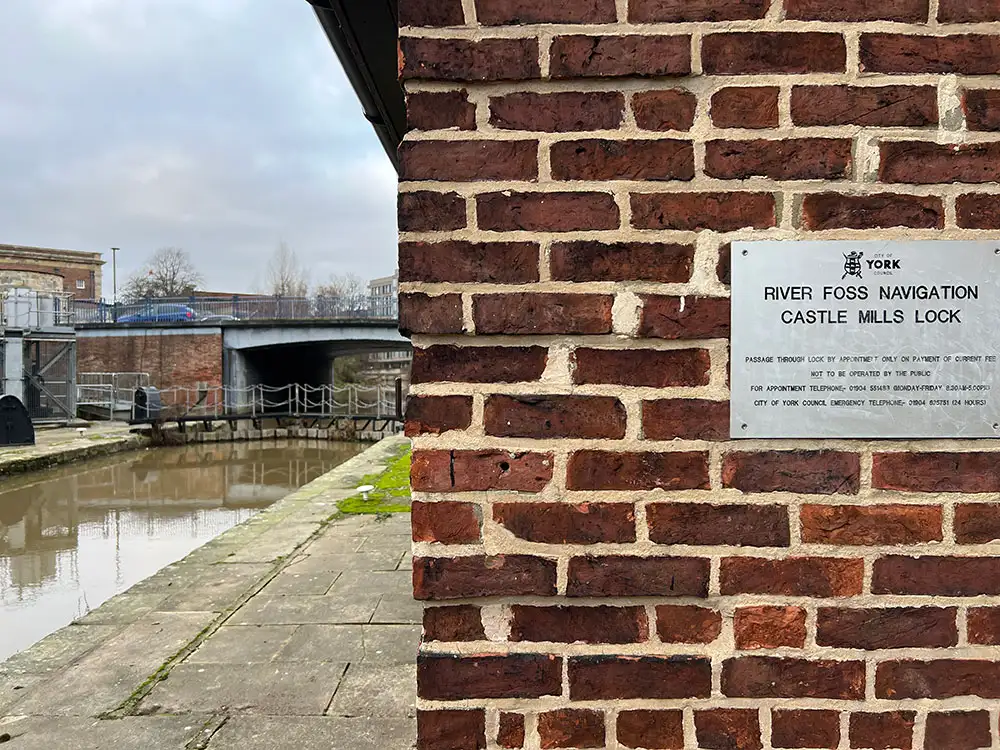
He added works were needed to the water level of the River Foss could be maintained which was essential for wildlife, neighbouring historic buildings and to increase the lock’s use.
Mr Rane said: “We get a lot of requests from boaters who want to use the lock but they can’t because it’s restricted, if the water level drops too low the council’s rubbish clearing platform would have to be craned in and out which would be expensive.
“Of course the council should spend money on fixing potholes and other services, but these gates have been patched up and the works have been pushed down the line and how long can you do that for?
“The lock is part of an ecosystem and river levels have to be maintained to keep fish alive, historic buildings along the Foss were also designed to work with the water pressure and they could be damaged if the water level falls too low.”
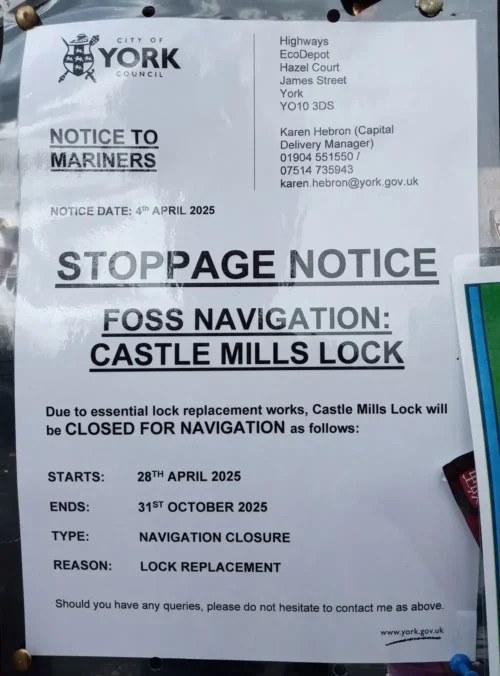
Noel Feather, of the North Riding branch of the IWA whose volunteers also operate the lock, said factors including water levels and council works had limited its use.
Mr Feather said: “Our volunteers operate the lock to support leisure boating and help keep this historic navigation in use.
“We’ve continued to champion access through, for example, initiatives like the Silver Propeller Challenge to encourage greater use of our wonderful waterway.”
Mr Gilchrist said inspections carried out this year found significant leakage that needed to be addressed.
He added no options to attract external funding for the works were available.
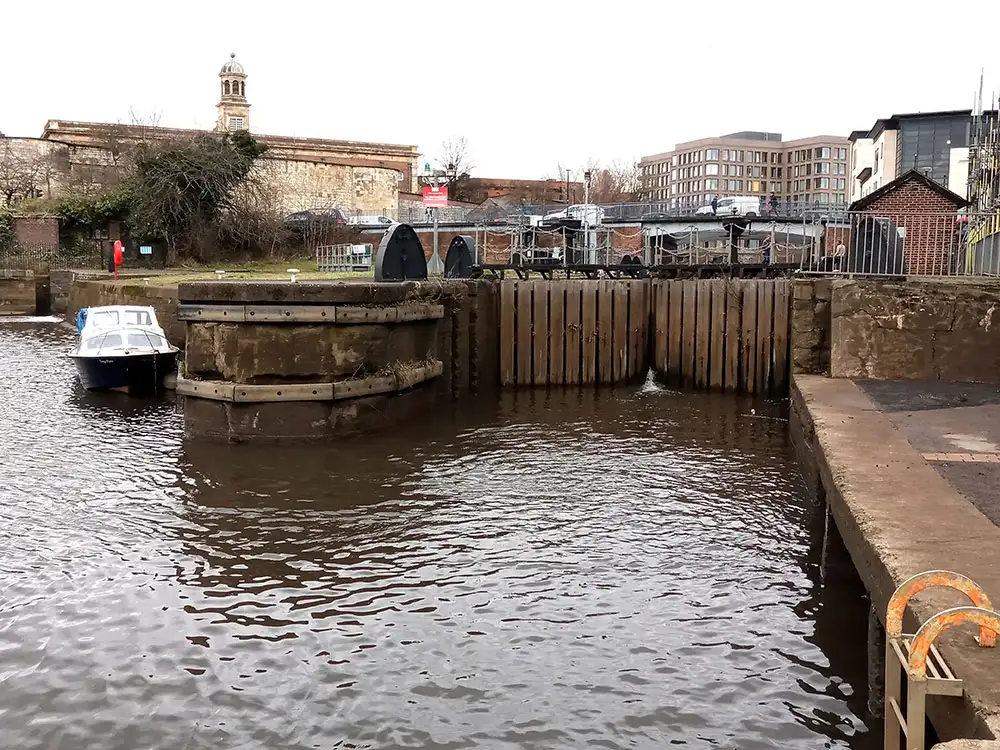
The director said: “Timber lock gates have a typical lifespan of 25 to 30 years and the gates at Castle Mill were last replaced in 1986 and need replacing as a matter of urgency to comply with our statutory duties.
“Although navigation activity on the River Foss is limited, the lock gates regulate the upstream river levels and the risk of a rapid loss of river levels due to sudden gate failure would seriously impact the river, have a detrimental impact on wildlife and potentially result in loss of structural support to riverbanks and riverside structures.
“The work on site is planned to start at the end of the month to ensure that the council complies with its duties without further safety risk or delay.”
